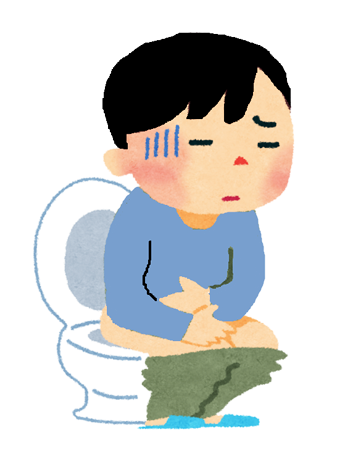Diet and Constipation: The Key Connection
Constipation can be occasional or chronic and may stem from multiple causes, such as a sedentary lifestyle, dehydration, or underlying gastrointestinal conditions like irritable bowel syndrome (IBS). However, in most cases, diet plays a major role in either worsening or relieving constipation.

Constipation: Causes, Symptoms, and Natural Relief
Constipation is a common digestive issue that occurs when a person experiences reduced bowel movements or difficulty passing stool. Along with infrequent bowel activity, people with constipation may experience several symptoms, including:
A constant feeling of incomplete bowel emptying
Hard, dry, or lumpy stools
Pain or discomfort during bowel movements
Loss of appetite due to a persistent sense of fullness
Although constipation can feel uncomfortable and even embarrassing, it should never be ignored. Research suggests that about one-third of adults over 60 experience occasional or chronic constipation, leaving them feeling bloated, sluggish, and uncomfortable.
What Components of Foods Help Relieve Constipation?
Adding the right nutrients to your diet can significantly improve digestive health and promote regular bowel movements. Here are the key components and foods to focus on:
1 Fiber – The Primary Constipation Fighter
-
Fiber is a critical component of both healthy digestion and stool formation.
-
It adds bulk to stool, making it easier to pass, while also providing digestive benefits such as:
-
Supporting the gut microbiome – maintaining a healthy balance of good bacteria.
-
Improving gut motility – helping the intestines move food through the digestive system efficiently.
-
2 Hydration – Water and Hot Beverages
Adequate hydration is essential for fiber to do its job effectively.
Drinking enough water softens stool and improves bowel regularity.
A warm beverage, such as coffee or tea, can stimulate digestion and offer fast constipation relief.
Foods That Relieve Constipation
Incorporating the following constipation-friendly foods into your meals can help:
Whole grains – brown rice, oats, quinoa, and whole-wheat bread.
Probiotic-rich foods – yogurt, kefir, sauerkraut, and tempeh to support gut health.
Fibrous vegetables and fruits – leafy greens, okra, pears, ripe banana, papaya, apples, prunes, and broccoli.
Lentils and beans – rich in soluble and insoluble fiber to aid digestion.
Foods That May Aggravate Constipation
Just as certain foods can help, others can worsen constipation. These include:
1. High-Fat Foods
Foods high in oil, cheese, butter, and grease can slow digestion.
Overeating fried foods, processed meats, or commercial baked goods often leads to delayed bowel movements.
Cheese, in particular, is a well-known constipation inducing food item.
2. Low-Fiber, High-Fat Diets (e.g., Keto Diet)
The keto diet, with its low-carb but high-fat focus, can easily lead to constipation.
If you’re following a ketogenic plan, include low-carb, high-fiber vegetables such as spinach, kale, and zucchini to maintain bowel regularity.
Effective Tips to Relieve Constipation
To get relief from constipation and prevent it from returning, follow these tips:
Gradually increase dietary fiber – Sudden high fiber intake may cause gas or bloating, so build it up slowly.
Stay hydrated – Drink plenty of water throughout the day.
Exercise regularly – Physical activity stimulates intestinal movement, helping stools pass more easily.
Maintain a consistent routine – Regular sleep and meal patterns help regulate bowel activity.
Consult a doctor – If constipation becomes chronic or painful, seek medical guidance to rule out underlying issues.
Read further on:
≺≺ How important is fiber in the diet?
≺≺ What role do probiotics play in the diet?
≺≺ Which food is most associated with helping people live longer?
≺≺ What grains have the lowest glycemic index?
≺≺ How Important Is Protein for Your Health?
≺≺ is your kid getting too much protein?
≺≺ What foods and vitamins are good for your skin?
≺≺ EWG's- The Clean Fifteen: Fruits and Vegetables with the Lowest Pesticide Levels.
≺≺ What Is the Ketogenic Diet? Is the Keto Diet Right for Everyone?
≺≺ What cardiovascular benefits do berries provide?
≺≺ What is the Okinawan diet? What is the secret behind Okinawan long life-expectancy?
≺≺ Ultra-Processed Foods: What They Are, Why They’re Harmful, and How to Cut Back.
≺≺ What eating strategies work best for losing weight long term?
≺≺ How Do Sugary Meals and Beverages Harm Dental Health?
≺≺ Why Vitamin B12 Is Important for Your Health?
≺≺ What foods should people with high blood pressure avoid?
≺≺ What are the top three minerals you can take to boost memory?
≺≺ Why is regular table salt considered unhealthy?
≺≺ What food is most effective for moderating blood sugar?
≺≺ What are antioxidants? How antioxidants in the fruits and vegetables help in preventing cancers and diseases?
≺≺ How can I reduce the risk of cancer-causing chemicals when cooking or grilling meat?
≺≺ What happens to my blood vessels when I gain weight?
≻≻ Watch this page for more such informative articles on Health, Nutrition, and Wellness.
≻≻-Back to Home page.
Further reading (External Links opens in new window):
≺≺- Johns Hopkins Medicine - Foods for constipation.
≺≺- Harvard Health Publishing - The lowdown on constipation.
≺≺- Medical News Today - Which foods are good for constipation?.